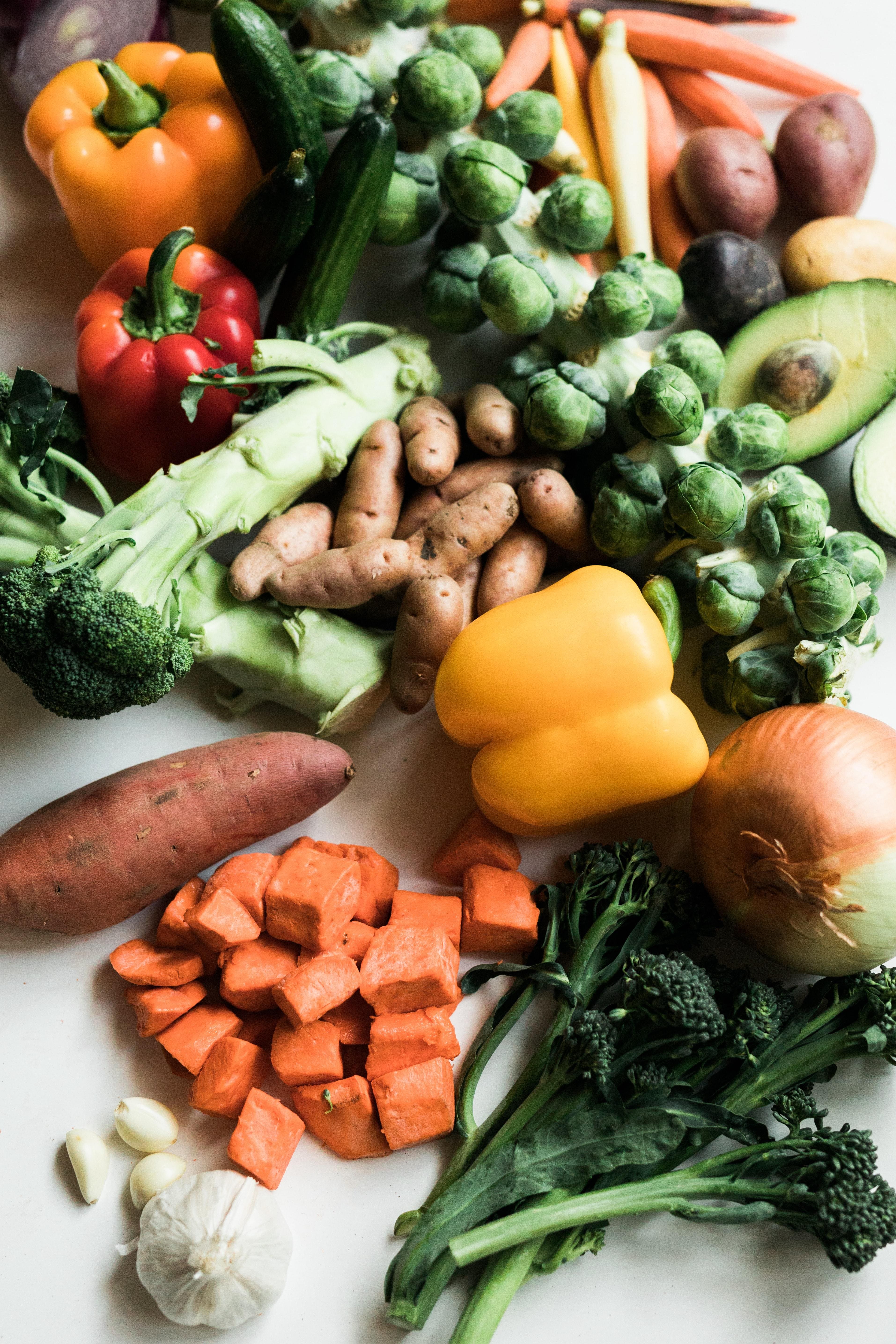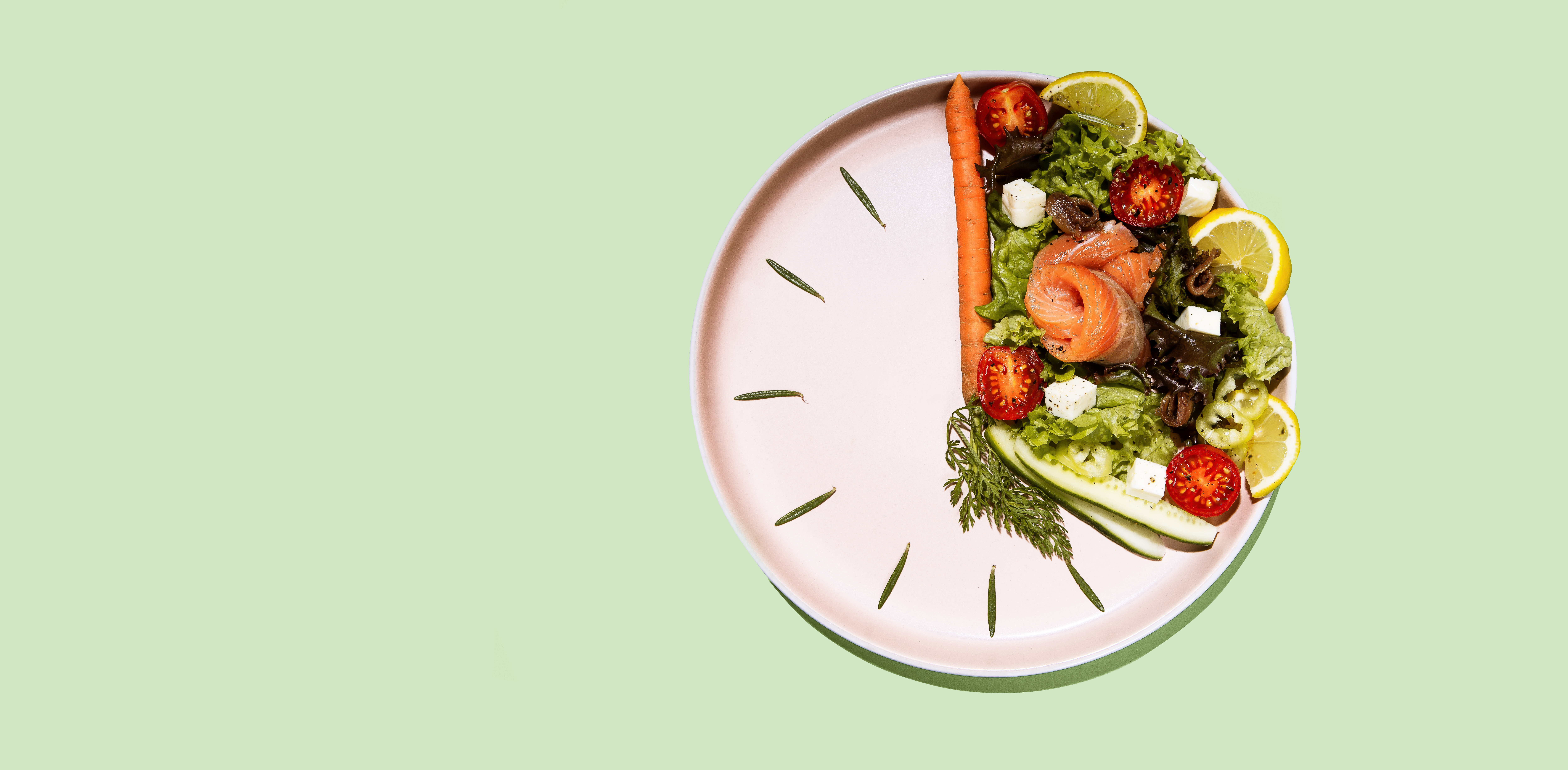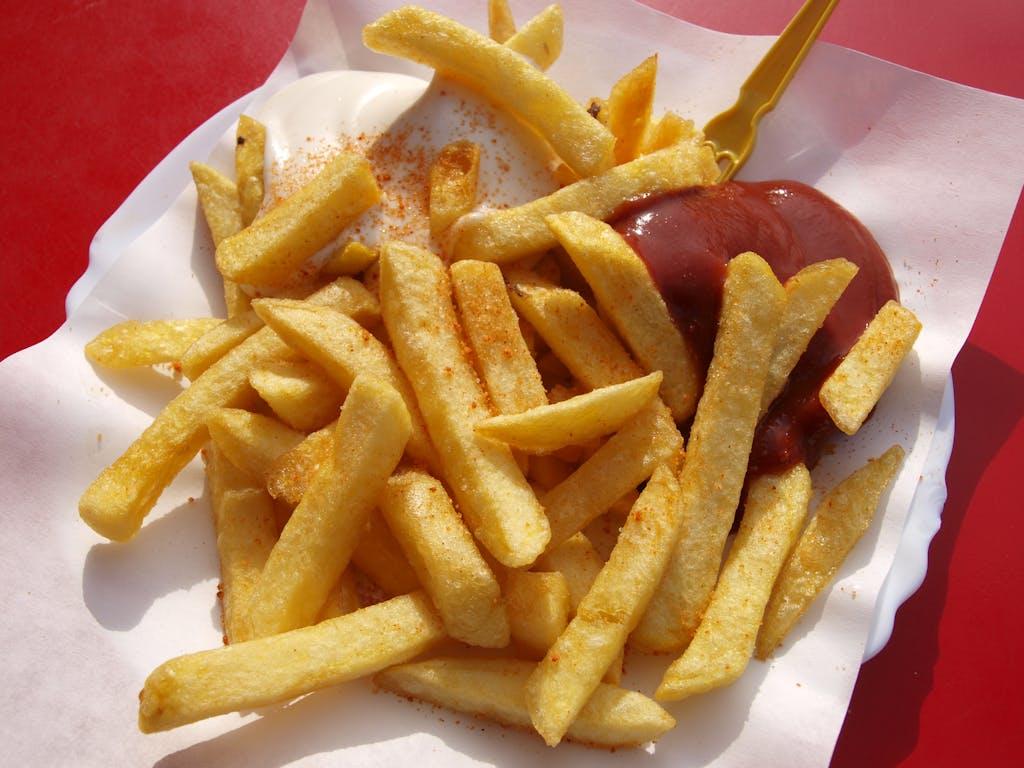Got GERD? Symptoms, Causes, and Nutrition Tips for Relief

If you struggle with acid reflux, heartburn and indigestion, you may be experiencing gastroesophageal reflux disease, commonly known as GERD.
What is GERD?
GERD is a digestive disorder that typically develops when stomach acids repeatedly flow back up into the esophagus. Your esophagus and stomach are connected by a muscle ring called the lower esophageal sphincter (LES). In normal circumstances, the LES closes after food passes through the esophagus and into the stomach. This mechanism prevents the occurrence of acid backflow.
In the case of an abnormal or weakened LES, the sphincter loses its ability to effectively close during food transit, allowing stomach acids to leak back into the esophagus. This backwash, known as acid reflux, can irritate the mucosal lining of the esophagus, which may lead to unwanted symptoms and potential complications.
GERD Signs And Symptoms To Look Out For
Common signs and symptoms of GERD include heartburn, chest pain, difficulty and/or painful swallowing, and food regurgitation. You may notice that these symptoms worsen after eating, especially with big meals or right after laying down. Depending on the frequency of your acid reflux, you may also develop a chronic cough.
Frequency of these symptoms varies among individuals. Some may experience it daily, weekly, or only a few times per month. If left untreated, GERD can lead to more serious complications. These may include esophagitis (inflammation of the esophagus), esophageal ulcers, narrowing of the esophagus, a precancerous condition called Barrett’s esophagus, and in more rare cases, esophageal cancer.
Common Misconceptions About GERD
Misconception 1: GERD is caused by overeating.
There’s an stigma around GERD that it’s caused by poor diet or eating too much, when in fact, that’s often not the case. Factors like stress, genetics, certain medications, and certain conditions like scleroderma or stomach ulcers can all contribute to chronic GERD.
Misconception 2: The main symptom of GERD is heartburn.
While heartburn can show up for some as the main symptom of GERD, it can be accompanied by many other symptoms, too. Chronic cough, sore throat, difficulty swallowing, and chest pain are all common markers of GERD.
Misconception 3: GERD is cured with medication.
Unfortunately, medication isn’t always enough to successfully manage GERD. Lifestyle and dietary adjustments, such as eating smaller, more frequent meals instead of fewer large ones, avoiding food and drinks that trigger reflux, quitting smoking, and more—are all essential components to easing the symptoms of GERD.
Misconception 4: GERD only affects older adults.
While being over the age of 50 is one of the risk factors for GERD, and it’s true that likelihood of GERD can increase with age, anyone—including young adults, infants and children, can be affected by GERD.

GERD Risk Factors And How To Prevent Them
Genetics can increase your likelihood of GERD, but there are also certain dietary and lifestyle factors that can weaken the LES over time, increasing your risk of GERD. Modifying these dietary and lifestyle habits can help prevent and manage symptoms.
Eating Habits And Patterns
As mentioned before, portion size, timing, and meal spacing matter. Eating large meals can put stress on the stomach and force stomach acids back through the LES and into the esophagus. Eating late at night can also trigger acid reflux by inhibiting gravity from doing its job. If you lay down right after a meal, chances are food will come right back up since it did not have time to properly get digested.
What’s the solution?
Avoid large meals and opt for small frequent meals spaced out throughout the day. Consuming five to six smaller meals a day and waiting two to four hours between meals will avoid overloading your stomach. This will give it the time it needs to digest the food you eat.
After meals, wait at least two to three hours before laying down. This will help relieve pressure on your stomach. So if you have dinner at 7pm, wait until 10pm before your head hits the pillow.
Speaking of pillows, it is also beneficial to elevate the head of your bed two to six inches with a foam wedge beneath the upper half of your body. This will ease the flow of food transit even when lying down.
The Foods You Eat
Certain foods can trigger acid reflux more than others. These include alcohol, coffee, tea, carbonated beverages, acidic juices, spicy and high fat foods, chocolate, mints and acidic foods such as tomato and citrus. On the upside, there are foods that can help alleviate GERD symptoms:
High-fiber foods
A diet rich in fiber, notably soluble fiber, has shown to reduce the risk of acid reflux. Fiber-rich food sources include whole grains (oatmeal, couscous, brown rice), root vegetables (sweet potatoes, carrots, beets), and green vegetables (asparagus, broccoli, and green beans). Soluble fiber foods include beans, brussels sprouts, avocado, pears, figs, flax seeds, sunflower seeds, hazelnuts, oats, peas, barely, apples. Psyllium husk is also a great source of soluble fiber and can be taken in the form of a supplement.
Alkaline foods
The pH scale is a determinant of acidity and alkalinity levels in an aqueous solution. Turns out, foods have their own pH levels. Low pH foods are more acidic, whereas high pH foods, known as alkaline foods, can help mitigate high levels of stomach acids and reduce acid reflux. Some alkaline foods include most fruits and vegetables (especially green leafy vegetables), soybeans, potatoes, tofu, legumes, seeds and nuts. Foods with high water content can also minimize the effects of heartburn. Some high water content foods include celery, lettuce, cucumber, watermelon, cantaloupe, peaches, broths and soups.
Ginger
Ginger has shown to improve acid reflux symptoms. Its alkaline and anti-inflammatory properties can help reduce irritation. For example, drinking ginger tea is a great way to ease heartburn by soothing the mucosal lining of your esophagus.
What’s the solution?
Incorporate more GERD-soothing foods into your diet and limit or avoid potential trigger foods, but only if they cause symptoms. Not everyone reacts to the same foods. There is no reason to take chocolate out of your diet if it doesn’t trigger your acid reflux. We all love a good chocolate treat and wouldn’t want you to skip it if you don’t have to.
Practical Meal Planning Tips for GERD
- Rather than eating three bigger meals per day, try eating smaller, more frequent meals to avoid overfilling your stomach (one of the main culprits of GERD).
- Reach for GERD-soothing foods such as fiber-rich oats and whole grains, as well as alkaline and high water-content foods mentioned above.
- Avoid trigger foods like caffeine, spicy food, acidic foods like citrus and tomatoes, chocolate, saturated fat, and fatty or fried meals.
- Instead of fatty meats, plan meals around lean proteins like chicken or fish, and incorporate healthy fats in moderation.
- Find a non-restrictive, GERD-friendly meal plan, and stick to it—see how your symptoms improve!
Lifestyle Habits
Smoking, physical activity, obesity, wearing tight clothing, and even stress can increase the risk of GERD and aggravate its symptoms.
What’s the solution?
Losing weight if overweight or obese can significantly reduce symptoms of GERD. Avoid exercising right after eating, as this can also worsen symptoms. Tight clothing, especially tight belts or pants, can increase pressure on your stomach. Switch to loose-fitting clothing, especially when eating meals. Find ways to decrease your stress levels through exercising, meditation, journaling, talking to a friend, or whatever it is that helps de-stress your mind and body.
Low Stomach Acid and Acid-Blocking Medications
If the LES is loose or weakened, it allows any amount of acid to backflow into the esophagus, which can increase your risk of, or symptoms associated with, GERD. Acid-blocking medications called proton pump inhibitors (PPIs) are often used to manage reflux.
However, if used for prolonged periods, a proton pump inhibitor can actually do more harm than good. Stomach acids have a protective effect against harmful bacteria and aid in the absorption of certain essential nutrients including B12, folic acid, calcium, magnesium, iron and zinc. Low stomach acid puts you at risk for invasion of harmful bacteria and inhibits the absorption of nutrients, which may lead to nutritional deficiencies such as anemia. Stomach acids also help break down protein, fats and carbohydrates for digestion.
What’s the solution?
If taking proton pump inhibitors, make sure to consult with your doctor about the duration of treatment. A standard course of treatment is 14 days. To prevent nutrient deficiencies while on PPIs, your doctor or dietitian may recommend supplementation of nutrients typically affected by low stomach acid. Furthermore, bitters, lemon-infused water, and apple cider vinegar can also help stimulate stomach acid production. While hydration is important, it is best to drink between meals as drinking fluids with meals may dilute stomach acids.
Additional Risk Factors
Research has also shown an association between increased risk of GERD and pregnancy, hiatal hernias, connective tissues disorders, delayed gastric emptying, and other medications, including aspirin and NSAIDS. If you are pregnant or have any conditions that may increase your risk for GERD, talk to your medical team and dietitian about implementing prevention methods to minimize risks.
Role of Registered Dietitians in Managing GERD
If you’re looking to address your GERD symptoms, and aren’t sure where to begin, a Registered Dietitian can be a valuable support system on your GERD treatment journey, and help you create sustainable habits you can stick with for life. A few ways RDs can help you address your GERD symptoms include:
- Creating a personalized dietary plan to reduce GERD symptoms, one that accounts for your unique food preferences and trigger foods.
- Helping you identify your trigger foods and sensitivities, and see what can be substituted in your diet to ease symptoms but keep you feeling satisfied after meals.
- Taking inventory of your lifestyle and identifying behaviors that may be contributing to GERD—and support you along the way in modifying these behaviors.
- Offering ongoing support and motivation in making long-term changes to food and lifestyle behaviors—it’s not always easy, and RDs can be your cheerleaders and help problem-solve with you along the way.
- Communicating with your primary healthcare provider to collaborate on your care and help empower you as a patient to ask for what you need.
The Bottom Line
GERD can easily be prevented or managed. It is always important to be followed by your medical team, especially if taking medications such as PPIs. Dietitians also play a key role in providing guidance on how to implement dietary and lifestyle modifications to reduce acid reflux symptoms and minimize risk of GERD. Need help navigating GERD or other chronic conditions? Get matched with a Culina Health dietitian today, and you could pay as little as $0 out of pocket with insurance.
Any general advice posted on our blog, website, or application is intended for reference and educational purposes only and is not intended to replace or substitute for any professional medical advice, diagnosis, treatment, or other professional advice. If you have specific concerns or a situation arises in which you require medical advice, you should consult with an appropriately qualified and licensed medical services provider.





